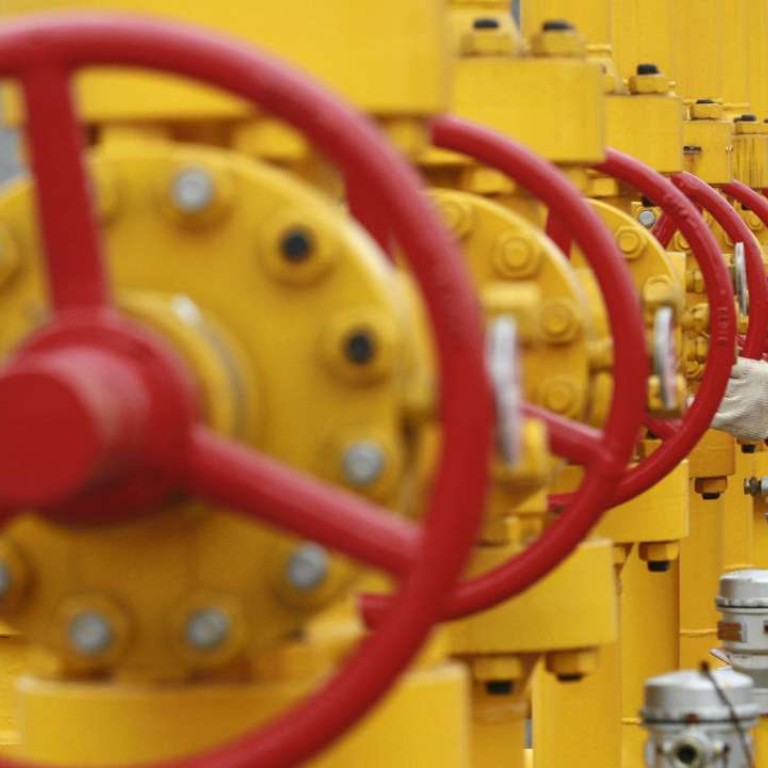
Energy stocks lift Hong Kong, China markets after OPEC oil production cut agreed
Hang Seng closed up 0.39pc to 22,878.23, while the Hang Seng China Enterprises Index increased 0.55pc to 9,892.31
Hong Kong markets closed at their highest level in three weeks on Thursday, buoyed by a surge in the prices of energy companies, as oil prices soared after OPEC members agreed to reduce production.
Hong Kong kicked off December trading with the Hang Seng Index closing up 0.39 per cent, or 88.46 points, to 22,878.23, while the Hang Seng China Enterprises Index increased 0.55 per cent, or 54.25 points, to 9,892.31.
Oil and gas companies were the biggest gainers, rising 2.66 per cent on average as a group and led the market’s rebound thanks to soaring oil prices after OPEC countries finalised an agreement to cut oil production for the first time since 2008. Brent crude futures for January surged 8.82 per cent to US$50.47 per barrel.
China’s largest oil and gas producer China National Offshore Oil Corporation (CNOOC) was the biggest winner among HSI components, closing up 6.13 per cent to HK$10.38, while PetroChina followed and leapt 4.74 per cent to HK$5.52. Sinopec Corp was up 2.40 per cent to HK$5.55 and China Oilfield Services shot up 8.57 per cent to HK$7.98.
Hong Kong markets also gained some support from signs of China achieving better-than-expected economy growth. The official manufacturing Purchasing Managers’ Index (PMI), which measures large state-owned factories, reached 51.7 in November, the highest since the 53.3 hit in April 2012 and matching the previous high in July 2014.
The gains in Hong Kong stocks narrowed on Thursday in later trading, as overall “momentum wasn’t great”, according to Linus Yip, chief strategist at First Shanghai Securities.
Victor Au, Delta Asia Securities’ chief operating officer echoed the sentiment, adding that although agreement for the oil output cut was the major driver for Hong Kong stocks rising on Thursday, he does not expect a continuous or strong rising momentum to derive from the oil deal, because other producers may fill the gap.
Yip does expect the indices to inch upward in the short term on gains among stocks with small market capitalisations, with the US dollar likely to have topped out, helping Hong Kong markets retain some strength.

China’s largest internet companies, Baidu, Alibaba, and Tencent, were invited to take stakes in the company, according to reports.
Mainland developer Glorious Property Holdings fell 33.33 per cent to HK$0.78, after plunging as much as 40 per cent at one point, after its controlling shareholder Best Era International scrapped plans to privatise the company.
The major focus now for Hong Kong and mainland investors is the December 5 launch of the Shenzhen-Hong Kong Stock Connect, which will introduce foreign players into Shenzhen’s market for the first time and double the quota for southbound flows.
The trading link will bring positive sentiment, Yip said, although some analysts have downplayed its importance.
“I am taking a wait and see attitude,” said Au who warned that the crucial Italian referendum this Saturday is a potential risk for Hong Kong stocks performance. “Next year will see a big depreciation of euro if Italy votes for No,” he added.
Mainland stocks reversed their Wednesday’s loses to close higher on Thursday. They fell the most in two months on Wednesday but still finished November with their largest monthly gain since March.
The Shanghai Composite Index closed up 0.72 per cent, or 23.27 points, to 3,273.31 while the CSI 300 – which tracks the large caps listed in Shanghai and Shenzhen – gained 0.76 per cent, or 27.04 points, to 3,565.04.
The Shenzhen Component Index advanced 0.69 per cent, or 75.96 points, to 11,088.16 while the Nasdaq-style ChiNext was flat at 2,181.93.
Mainland stocks and trading volumes remain under pressure after the central bank’s move to withdraw cash from the market in order to stall lending. The central bank is also restricting yuan outflows for the first time in over two decades.



